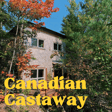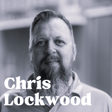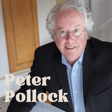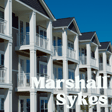Introduction to Ian Johnson and Croft
00:00:27
Speaker
I had a wonderful conversation today with Ian Johnson, an expert in all things related to the built environment. While today he serves as a principal at Croft, a main-based sustainable prefab construction and design company, Ian is well-versed in carpentry, permaculture, project management, renewable energy. The list really goes on. He's a fascinating guy. I am ready to commission a home from his company. His mission is inspiring.
00:00:57
Speaker
You guys should definitely check out Croft's Instagram and the works that they've done. There's a lot posted there. I'm going to link its details in the show notes.
Ian's Journey and Croft's Mission
00:01:06
Speaker
But in today's episode, Ian and I dive into his journey of finding his passion after college.
00:01:13
Speaker
into the human and environmental importance of really investing in sustainable housing and into the realities of ethically operating a company like Croft. This really opened my eyes to some of the logistics behind creating housing that just caters to some of the movements that we've been seeing gain a lot of popularity, like out of small footprint and minimalist living. So I hope you guys enjoy the episode.
00:01:42
Speaker
Um, all right. So I have spent the last 30 minutes on your Instagram and I have to say like, this is a work of art. Are you making these posts yourself? Uh, on which one? Um, Croft underscore CO2.
00:01:57
Speaker
Okay. No, that's Andrew. So that's the founder of Croft. So Andrew founded Croft in 2020. And so he's been doing Instagram and that's really the only way we've gotten any traction initially with his friends and Instagram. So yeah, that's all I have.
Design Principles and Environmental Focus
00:02:20
Speaker
I mean, I'm looking to get a quote at this point, honestly, the coastal cabins too. Oh, the visuals are just stunning. Okay, so Croft does focus on producing then low carbon, high performance homes that aren't tiny houses per se, but they are compact. Right. So a lot of people often say, oh, you build tiny homes.
00:02:42
Speaker
There's some small homes that we build, but yeah, they're more about giving you the space you need in an elegant way, and then having them be as environmentally friendly as possible. They're a little bit bigger than most of the tiny homes. Our smallest one's about 500 square feet, and then 800, that one you can have in a couple different levels, so you can have a second floor, makes it a little bigger.
00:03:09
Speaker
But yeah, they're not McMansions. That's a big focus. It's not continuing that kind of design. Well, we probably don't need any more McMansions, let's be honest. Exactly. That's kind of the point. Yeah.
Modular and Multi-Generational Living
00:03:24
Speaker
Well, about size, I see that you guys seem to have an extra large model coming up or it's 800 square feet, kind of the max you guys are looking to cap out at.
00:03:34
Speaker
Well, the 800 square foot is really just for a single story. So that could also be up to 1200 square feet. And then, yeah, we're doing the 1,000, which can also have a second story. So that could be a bit bigger. And what a lot of people are doing is they're combining different of the volumes. So they might have like 500 with an 800 and maybe a 500 on the other side. So they get almost like a little
00:03:58
Speaker
compound layout of the house. So we have a lot of clients doing maybe two at a time and then having a little connector hallway and things like that, or connecting them in a T or L shape to really give extra space, but break it up so that it's very clear what that space is used for.
00:04:19
Speaker
Andrew's design sense is very focused on that and kind of making sure that it's very thoughtful and thought through about where the light comes in and where you're going to be sitting.
00:04:30
Speaker
So this kind of design structure seems really compatible with another trend I was just reading about an architectural digest where multi-generational living and clan living, I guess is how people talk about it, is becoming more popular. So families will live really close together, but everybody has their own separate space. They'll buy a piece of land and then everybody has their own little setup. That's really incredible.
00:04:54
Speaker
Yeah, it seems like everyone's talking about that nowadays because I think we've all kind of lost touch with everyone living all across the country and the world sometimes even, and to bring everyone close together. And I think everyone still needs their own space.
Innovative Construction Techniques
00:05:11
Speaker
And we kind of launched the 500 as an ADU, auxiliary dwelling unit to allow for that.
00:05:18
Speaker
And, you know, some people are just going to do the Airbnb thing, but others are going to have family and friends have, you know, you get a whole house when you come to stay with us, not just a bedroom. So you have your own bathroom and kitchen. And so there's a lot of benefits to things like that. And so you can make it very dynamic, expand the family. That's the other thing is like, you know, for young couples, they're like, OK, we can only afford so much. And they build like the one single of whatever size they can afford. And then it's like, oh, we have kids coming along. We can add on.
00:05:47
Speaker
And then it's like as they move out, that space is no longer for the kids, it's for grandma and grandpa. And so it is kind of tied to like the way we actually want to live. Sure. Purpose driven, I get it. And it's a house that you can be proud of too, right? Like if it's in a beautiful location, you don't necessarily have to worry about the construction of it infringing on the environment.
00:06:10
Speaker
Yeah, and we've been very thoughtful about that. So in Maine, it's very difficult especially to find good pieces of land that you can just kind of foundation in and put a house on. So we end up with a lot of areas that are just covered in ledge, solid rock.
00:06:26
Speaker
And in the past, the only option was really to blast that out. And so it's extremely expensive, time consuming, you've got to move all the rock out and you're disrupting the land. So you're changing the landscape pretty drastically from what it was. And so with some of our projects, we've been able to just pin right to the ledge and build the foundation
00:06:51
Speaker
into it rather than extracting it all out. So we're thinking about low carbon and environmentally friendly foundations as well and trying to figure out, well, how's the best way to put
00:07:05
Speaker
the homes on the land. In areas where we do have a lot of soil, we can do techno posts and other systems that allow us to just pin into the ground and drop the house right on those very minimalist kind of install.
00:07:23
Speaker
So I know I'm not even getting into the questions yet, but we
Flexible and Customizable Prefab Systems
00:07:27
Speaker
laid out. But I'm so curious because you're talking about really making the home custom to the land as opposed to the other way around, which is like the more common design philosophy these days, especially when it comes to commercial developments. But you guys seem to specialize on building custom panels and then volumes, right? So like entire constructed things and then individual sheets of material that you use to build homes or
00:07:53
Speaker
Yeah, sort of. So the basic wall panel is a double stud wall with compressed straw in between that. And so we can take that and adapt it to any architect's design. So if someone came with a design, we can say, okay, this is what the panels will look like. We might ask to tweak a window here or there just to give correct spacing.
00:08:16
Speaker
Because you don't want to make panels too skinny. You kind of need a decent size panel. But the openings can be of any size, and so it's very flexible there. And then the volumes are really just our in-house pre-design. So for someone that doesn't want to jump through hoops and the added costs of working with an architect, it's more of kind of off the shelf option. And it's like, OK, there's no additional design cost to this. I can take that as is, you guys will build it.
00:08:44
Speaker
And we'll put it kind of on the site. We have a straight number for what that will cost. And that's for the envelope. We're typically not doing finishes at this point. So you're getting the envelope and then you can have a local GC where electrician kind of wrap things up. Okay. So for more of the traditional homeowner,
00:09:04
Speaker
if you guys are catering to traditional homeowners at all. For the traditional homeowner, we're just starting to get into clients in that realm. Right now, it's been a lot of people that are excited to do some of the work themselves and get involved and really think through about how they finish it. Maybe that's phased over a couple of years and not right away.
00:09:29
Speaker
But yeah, exactly. So for traditional homeowners, they're usually already talking with an architect coming to us and they want the environmental aspects. A lot of clients now are asking for our panels who have chemical sensitivities.
00:09:46
Speaker
because there's no chemicals in the panels whatsoever. It's straw, lumber, screws, and then we have our vapor barriers on the interior next year, which are red list free through the International Living Future Institute. I want to see one of these in person. I might have to fly out to Maine.
Ian's Career Path and Networking
00:10:07
Speaker
Yeah, definitely. Come on up.
00:10:09
Speaker
Okay, so I do want to hear a little bit about you, of course, and your background. I see that you majored in information systems and have just been absolutely entrenched in the world of sustainable construction and design. How did you get from where you started in college to being a principal at Croft?
00:10:28
Speaker
Well, it was a long, funny kind of story. I had spent a lot of high school summers and college summers swinging a hammer with the local carpenter in New Jersey. We did some big additions and full houses, and I really learned how to do all the basics, install trim and put up a foundation and flooring. So that's kind of where I built my base of experience.
00:10:56
Speaker
And then I got out of college with an information systems degree and I just realized like computer programming and that type of thing was not for me. My brain didn't work that way or I didn't want to be kind of doing that all the time. I didn't really have the interest. It was more of like I finished it to not change majors.
00:11:16
Speaker
Um, which looking back wasn't the best decision, but I still ended up where I wanted to be. Um, so then I out of, uh, undergrad, I kind of started looking for a job in still in information systems. And I was kind of all over the place and wasn't sure what I wanted to do. And one of my mom's friends who was really influential said, you know, why don't we restructure your resume for construction? You have a lot of that experience and maybe you could apply that to something.
00:11:49
Speaker
kind of a job as a project engineer with a company at New York City. And so I ended up working on large scale restoration projects of high rise buildings, brick facades, and all of a sudden I'm learning about all different types of facades. And then we had this big project down on the Jersey shore that was all EFS. I'm not sure if you're familiar with that product, but it's like this foam that's sprayed with kind of like on
00:12:10
Speaker
And I did that and I got
00:12:20
Speaker
I can't think of the term, but almost like a light concrete. Stucco, that's the word. It looks like stucco, but underneath is EPS foam. That building had five or six different types of facade. There was concrete.
00:12:43
Speaker
brick, stucco brick, the ephes, and so I'm learning about all these different layers. And that was kind of a big piece of my education on that project, which it was just learning from start to finish on all this stuff that I'd never really been exposed to. And funny enough, that just led into everything I was going to do down the road.
00:13:05
Speaker
So after a couple of years doing that, I got totally burnt out on that job. And something just told me moved to Boston. It was kind of like a little whisper in my ear. And I was like, OK, I need to move to Boston. I had a couple friends.
00:13:19
Speaker
Had you never been there? I had been there. I spent, undergrad was in Vermont and I had some buddies in Boston and I worked in Cape Cod for a couple of years at a restaurant. So I had connections, but it was still a little bit out of the blue. So I moved up there and I was just working for an asbestos and mold remediation company, which kind of like the bottom of the barrel when you think of like construction
00:13:43
Speaker
It's rough. It's dirty. The guys weren't the nicest group, but it got me there as he gave me a paycheck. And that was my mindset, was do whatever you need to do to get there, because I was supposed to be there.
00:14:00
Speaker
And so as I was doing that, I started thinking about what I was going to do next and maybe grad school. And so I went and toured Boston University and met Professor Nathan Phillips, who was doing all this cool work. And I met one of my best mentors ever was Dennis Karlberg at Sustainability Department at Boston University.
00:14:21
Speaker
Um, and I got an internship with him before I was even full time in grad school. Oh, wow. So I was non matriculated, uh, and not, you know, just taking classes. And, uh, he kind of brought me in to do my first lead project. Um, cause I had had construction experience. I was interested in sustainability and they were doing, uh, one of the first lead certifications, um, for some of the faculty housing on campus. Um, and so I did, I did all that and the consultant
00:14:51
Speaker
who was actually doing the certification. So I put together all the documentation for the project and gathered everything from all the consultants. And then the consultant who was actually reviewing that documentation, I ended up getting a job with who was out of Portland, Maine. And that's how I ended up in Maine. So that was kind of a great opportunity and also brought me to Maine, which I've been here for the last 11 years.
00:15:20
Speaker
So it almost sounds like you had started cultivating a real interest in sustainable just construction and building materials before you met Dennis. Was that the case? Is that how you two got connected? Like you were interested in what he was doing and you reached out or
00:15:39
Speaker
Yeah, I was trying to find a way to, I was really interested in kind of like just helping to heal the planet. And I saw all the difficulties in the way our society functioned. And it all seemed backwards to me. And so I looked at the energy and environmental analysis degree at BU and then started talking with Dennis and Professor Phillips to see how I would align that with construction.
00:16:08
Speaker
And the lead, I was like, oh, I want to learn about that someday. But I hadn't made all the connections yet. It was sort of just very abstract at that point in my mind, like what direction I'd go in. And so it just kind of all kind of fell into place as I kind of started making the connections. And, you know, yeah, at school was far more about the network of people I met than actually classes.
00:16:38
Speaker
I would say that all the classes were helpful, but the majority was not directly linked to the work I ended up doing. So I paid a lot of money for meeting people, but that's kind of what I told a lot of people, like make sure you're interested in that topic because it's going to cost you, but it may take you to where you want. And it's always the last content or the courses that you're sitting through that is actually going to bring you where you want to go, but the experience
00:17:08
Speaker
That seems to be the case for most graduate programs just based on conversations I've had, but it's kind of funny because people seem to think that MBAs are the only program that works that way. You go there, you pay for the network, but yeah. Right, right. Yeah, interesting because
00:17:24
Speaker
It's almost like they should maybe design more programs that focus on that instead in a way that, yeah, you take a couple classes, but the majority of it is networking and going to conferences like Dennis pushed me to go to a conference, the green build conference up in Toronto.
00:17:40
Speaker
And I was a grad student. I had no money. And so I like scraped my pennies together to go do that and ended up having a conversation with my future boss. Like that was like six years in the making. Like it was way down the line. Wow. So that was just funny. And it's just the way it all worked was the nap.
00:18:00
Speaker
So for people who are in a similar position who are looking for individuals like Dennis, do you have any tips for how like most effectively to reach out? How do you express your interests in a way that doesn't sound brown nosy or like you're coming into the conversation with an intention other than to get to know them?
00:18:19
Speaker
Yeah, I mean, that's tough. And I think, you know, people are different about how they give up their time, too. And some people are going to be a lot more open than others and just be just to be aware of that. Like some people aren't going to respond to your email. I'm.
00:18:34
Speaker
I'm usually pretty good if I have time because I saw the benefit of having a mentor and just having someone answer a few questions for me and will support me. And there's plenty of people out there that will are ecstatic to kind of help people coming up. Sure.
00:18:50
Speaker
And it's just I think one thing that is helpful is like being knowledgeable about the topic. A lot of folks will give you more time if they know you're serious. And so, you know, and it doesn't have to be about the work that that person in particular did. It could be. But, you know, if you're just knowledgeable about something you've been studying or you read a couple books on a topic, that's always helpful to give you that kind of direction. Right.
00:19:20
Speaker
A little bit of ethos, yeah.
Sustainable Building Practices and Cultural Shifts
00:19:23
Speaker
Okay, you mentioned this earlier, I've been thinking about it, that there were things in the world that you wanted to fix, right, by kind of getting really involved with sustainable construction. What were those things? What bothered you? What did you see just sustainable housing being a solution for? Like, I'm guessing it's some sort of excess, like you're not liking the kinds of materials that are typically being used in housing developments or
00:19:50
Speaker
Like I guess what was the catalyst that really got you looking into sustainability?
00:19:56
Speaker
Yeah. I mean, there was a lot. I think seeing the flaws in a lot of materials and the way that there was the whole big issues with spray foam when it first came out and it wasn't mixing right and people were having sick building syndrome and that was a big topic back then and leaky buildings and not having
00:20:20
Speaker
homes built in a thoughtful manner. Most homes you're seeing slapped up as quickly as possible with the cheapest materials and no one thinks any different of it. It's just become the norm. And I always had this thought in my head, we need to just build in a way that aligns with the native cultures of the world. They were sustainable before. Sustainability was a hot topic.
00:20:49
Speaker
They built and lived in a way that aligned with the planet, and there was no trash. It was all generative, all recycled, all worked together, and granted people standards for a little different back then, I think. But where my head was going with that is you can modernize that idea.
00:21:10
Speaker
and make it so people still feel like they have a clean, comfortable home by today's standards, but base that on natural materials and things that come from the Earth that are regenerative. It's an interesting concept. When you look at what archaeologists are digging up today or just people who study older societies, there's all kinds of
00:21:31
Speaker
you know churches or just even the homes of the average person that still exists made out of stone and all kinds of old cement mixtures and makes me wonder you know in a hundred years from now what's going to be left of our stuff like pile of nails maybe but
00:21:46
Speaker
Yeah, and a lot of plastic. Yeah, I mean, that's the other thing is that we don't build anything out of stone anymore. It's just too expensive and the topics that often aren't talked about when it comes to that is that
00:22:03
Speaker
It's built to last. It's not built for 100 years or 50 years like most of the stuff is now. That's built for a thousand years plus. I love that. And some people might say, oh, you know, we don't need to build for that long. Why not? You know, if it's built right and it's built in a way like the architecture from the past is just beyond gorgeous. We can't even build things like that anymore.
00:22:24
Speaker
We don't even have the technology or the tools to recreate a lot of those old buildings and churches. And so, you know, there's kind of like a lot going on with thinking about that and how do we get back to that? There's probably a cultural shift to that's required.
00:22:43
Speaker
I think a lot of people tend to think transiently just about what it is that they're doing on Earth. They think about their lifetimes and maybe that of their children, but not so much about the things that they're doing that will impact generations, two or three hundred years in advance.
00:22:59
Speaker
Yeah. It's an interesting thought. Can you explain just prefab housing in general, passive housing for people that might not really be familiar? Sure. There's a couple of types of prefab. There's prefab, which is you've got elements of a building built in a factory. I would say Croft is a prefab company. We build the walls, the roof, the floor.
00:23:27
Speaker
We ship that to the site on trailers, and then a crane comes and picks that off the trailer and puts it all together. It's also modular, which is similar, but you're getting larger pieces. So you may get a full finished bathroom and bedroom, and there's sheetrock on the walls, and windows are in, plumbing is run. Plumbing and electrical are run through the wall. It's kind of all connected up once it gets to site, so it's a little bit more finished, or much more finished.
00:23:54
Speaker
and sort of a different product. The certifications you need and kind of the process you go through is structured differently, but they're both factory. And then passive house could be built modular or prefab or stick built on site. And that really a high performance certification and looking at total energy use of the building.
00:24:20
Speaker
So, that's looking at what often it's focusing on envelope and air tightness. And a big piece of that is the windows and doors, because those are the leakiest parts and they're less thermal resistance. Making sure, because you're building this really tight building, you still have really good intelligent systems to bring in fresh, make sure you're not getting stuffier and creating sickness in the home, but flushing that out so you have minimal
00:24:50
Speaker
minimum air changes per hour.
00:24:52
Speaker
and very high efficient system. So because you built this home really tight, your systems, all your mechanical systems can be much smaller than a near like typically built into a house or designed into a house of that same size. So the focus with LEED and Passive House and some certifications in like the last 10 to 20 years has all been about how much energy does the building use?
00:25:21
Speaker
And now Croft is taking that and expanding upon that. So with our walls, you get very close to a passive house design. Actually, you'll hit passive house in certain climate zones. But it's also really thinking about where do the products come? What's in the products? And it aligns a bit more with the certification, like the living building challenge.
Croft's Expansion and Industry Standards
00:25:44
Speaker
where we're looking at all the materials that go into the building, you're looking at where they came from and making a radius of understanding that, okay, there's a cost, an energy cost, and a carbon cost to bringing something from California to Maine. And the travel that goes into that are bringing products from China, which a lot of things come from.
00:26:10
Speaker
taking the high performance world of construction and also aligning that with kind of thoughtful material selection is kind of the next phase that's really been coming up the last couple of years.
00:26:24
Speaker
I'm kind of curious, business operations wise, what consideration for your carbon footprint means for your desire to expand. So you guys are currently on the East Coast, right? Do you have plans about expanding to the Midwest, West Coast, things like that? Or are you more so intending to stay a little bit smaller scale?
00:26:44
Speaker
I think we really want to expand. We've had lots of conversations on this lately and how we do that could go in about 30 different directions and trying to be intent with, thoughtful in how we move forward with that.
00:27:03
Speaker
the way we've done things so far is not the typical just build a bohemoth factory and pump things out all across the country. So it may be peaks of interest. We've had people reach out, hey, we want to start a craft factory. What do we have to do? And we're still getting things together to figure that out. But
00:27:25
Speaker
If people are interested and they're in key locations where there's going to be a market, that may be the first step. You find some strategic partners and it starts to grow organically in that way. There's always a franchise option. There's a lot of different thought on how that might work and what it would look like.
00:27:46
Speaker
because we can't build all the homes that need to be built and that are requested. We can't keep up already and we're only a couple of years in. So we're trying to figure out what's the best way to make this so it becomes the standard.
00:28:01
Speaker
And a big piece of that is for us to get our systems and machinery down to the point where it's super cost-effective and it's the cheapest option out there. And that way, it's a no-brainer for people to say, yeah, let's build a thousand of these somewhere where they're doing a big development in Texas or Omaha.
00:28:21
Speaker
Okay. So you guys are then kind of looking for bigger contracts potentially as opposed to catering to individual homeowners who are interested in having you guys commission a property for them? Yeah. So, I mean, we've done all single families up to this point. We now have a couple commercial industrial projects looking to get the panels of handful of multifamilies that are interested. Oh, well. So the drive and we're seeing the benefits there, right? Because there's more
00:28:51
Speaker
surface area. So on a larger multifamily project, you can have a hundred homes in there rather than just one. So the impact of actually building is a bigger positive because the panels are doing such a good job of sequestering carb. What are the pros and cons just of your daily professional experience? What do you say things you really like doing and things you kind of wish you had to do less of?
00:29:20
Speaker
Oh, that's a good question. I really like doing logistical planning and project management and thinking through the steps that are going to need to be in play in order to make an install happen and lining up. There's a lot of people involved that we have to work with vendors and trucking companies and the crane contractors, material suppliers.
00:29:43
Speaker
there's a lot of conversations and moving around that happens and that's just fun and different every day. It's never the same. Some of the more difficult things are, it can be stressful at times, right? When you're dropping a house on a site, we're moving big, heavy machinery and big panels. So there's a level of safety that needs to be integrated and you want to make sure everyone's safe and no one gets hurt and
00:30:10
Speaker
Luckily, we've been very safe so far and plan to keep it that way. There's also just those conversations that happen with any job of having serious conversations with employees and making sure we're staying on track and schedule
00:30:30
Speaker
and balancing the world between keeping employees happy, keeping clients happy, and also staying true to ourselves and not caving to everything and trying to put out a good product.
Research and Innovation in Materials
00:30:44
Speaker
So there's just a lot of moving parts to a company like ours.
00:30:50
Speaker
We're not alone in that. Being a new, unique product adds a lot of complexity because we're also figuring out research and development things on a daily basis. Oh, we do this better. That's been tough, is not having it 100% set where we're like, we can do this better. We can do this better.
00:31:12
Speaker
It adds a layer of complexity that's exciting, but also we're still inventing, which is fun. Do you guys have material scientists on staff who are keeping up with all things innovation related?
00:31:29
Speaker
Andrew Frederick, the founder is definitely a material scientist. And he knows quite a bit about everything. And I've done a lot of research projects and I did a couple projects with clients on material research. So I've got some information. But yeah, he has, he dove into straw many years ago and has learned all the kind of
00:31:52
Speaker
physics of it and how it works when it gets compressed and all the different ways that straw is a very specific product. As you compress it and what happens and what pressures work and how much is too much,
00:32:10
Speaker
Um, you know, cause it starts to actually behave like a solid one once you press it. Um, so, you know, everyone thinks it's just like this, you know, kind of like flaky little, um, material that you see in animal bedding, but it's, when you start to mess around with it, it changes how you see it. So, um, yeah, we're always trying to think through, you know, how do we innovate what we're already doing? And do we, is there a product better than straw?
00:32:37
Speaker
Are there different materials that we can use and could we use different sizes and how can we eliminate some of the cost of the product? So there's a lot of innovation that consistently is happening. And so Andrew's been kind of way on top of that and that's really his main focus is that.
00:32:55
Speaker
So meaning this is a naive question, but since we're talking about how straw reacts to being compressed, is this something you could kind of turn into a filament and then 3D print walls out of, or do you kind of have to handle it differently?
00:33:10
Speaker
You probably could with pretty much anything. I mean, it's very high in silica, so there's properties that are like sand in it, and that's why it starts to behave like a solid. But the one thing we focused on is minimizing processing.
00:33:28
Speaker
And so as you add processing with anything, you're also adding energy that has to be burnt in order to make that product work. With the straw right now, it's so straightforward that you're taking it from the field, putting it into a bale and putting it into the wall. I love that.
00:33:49
Speaker
So the processing is really just shipping it and bailing it. And so that minimalist kind of focus allows you to capture all the carbon in the straw and not expel a ton. And that comes back to your question from before about how we expand.
Challenges with Building Codes and Public Perception
00:34:09
Speaker
There's the idea to build the big multi-million dollar machine to just crank panels out.
00:34:15
Speaker
which is one route we could go, right? But right now we've also, we've thought about, well, what does it mean to create jobs and work with a system where it's mostly human powered so that you're not expelling a lot of fossil fuels and you are also creating all these extra jobs because people need to be there to work the machine. And so there's a big lack of
00:34:42
Speaker
people in the trade trades these days. And so there's, we're working on a whole apprenticeship program to kind of focus on that. And so, you know, shift the thinking of how that building has, how building a building has to function and what that looks like and minimizing milk processes in between. Got it.
00:35:02
Speaker
Speaking of processes, this came to mind earlier. If you are trying to put down a croftome on more of a barren site, let's say cliff side or near a waterway or something, do you face a lot of zoning issues, a lot of red tape when it comes to getting municipal permission to build the house?
00:35:23
Speaker
That's a great question. We built one on a cliff right by water. That was fine. What it comes down to is actually the
00:35:36
Speaker
the officer in the town, so the building code. Board enforcement officers interpret code differently from town to town. So, straw bale is approved. It's in the residential code, so you can build straw bale.
00:35:54
Speaker
No problem. Most people don't care about what's in the wall. It's more that it's in the code and it meets the requirements for fire, are kind of the big ones. But yeah, as we move into commercial industrial multifamily, we've got some hurdles and additional testing to do. We know that it meets the testing. We have a YouTube video where we show
00:36:17
Speaker
torching, us torching the panels and how much better they perform than standard insulation materials. But there's a big mindset change. And the way that there needed to be a mindset change for people to start getting excited about sustainability a long time ago, this is like the next phase of, oh, straw, I don't think that's good because in my head, I think it's going to burn, it's going to mold, there's going to be bugs in it. And so those are the main
00:36:46
Speaker
questions we get and we have answers for all of them. And that's really what we need to kind of, there's a big education piece to it as well, to educate and kind of let people understand that this is a great product. It is all natural and doesn't really have all these issues that everyone kind of just has ingrained for whatever reason.
00:37:11
Speaker
Now, have you seen in your clientele that these kinds of homes are something that new homeowners are interested in, maybe like younger families or people just starting out?
Clientele and Project Preferences
00:37:20
Speaker
Or does it tend to be somebody with a little bit more of a developed taste in housing, like this is their third, fourth property and they're looking for something?
00:37:29
Speaker
Yeah, so we have a handful of young couples and single people as well. And then there's some older folks who, yeah, this is their third or fourth home and they just want it done right this time. And they're really excited about using the product. And then, like I said, a couple of people with highly sensitive chemical allergies that couldn't find any other option and that's what they want. Right.
00:37:57
Speaker
So, yeah, it's expanding every day. We're kind of getting more and more of kind of the just normal people, hey, we want to build a house. We want to do it right and want to minimize the impact on the planet when we do it.
00:38:10
Speaker
I love that. Definitely in the same boat. I'm ready to buy it. What are your favorite projects to work on? Do you gravitate more towards these multifamily unit construction or do you like single-family better vacation homes? Who do you like to build for?
00:38:28
Speaker
Yeah, I mean, right now we've started off with really just focusing on people who wanted to build a croft home, which was they had probably a very specific mindset going into building their house.
00:38:43
Speaker
you know, some people have found us through the timber frame world because that's a really kind of, you know, more organic, unique style of building that's not as standard, um, in, you know, the, the big developments that are going up. Um, and so we get a lot of little different folks and some are kind of all over the place. I'd say I have a lot of experience previously in doing passive houses in multifamily world. Um, and,
00:39:11
Speaker
We would love to be doing that more exclusively only for the reason that larger buildings, you're solving all the same problems you are for a single family. But you're doing it at a much- At scale. You're doing it at scale, right? So the impact of that one project is so much bigger.
00:39:32
Speaker
makes it a lot easier to just kind of focus on that for a period of time rather than on something you know it's like with anything you know you do a bunch of little things
00:39:41
Speaker
hundred times versus doing maybe five big things. It's just more efficient. So efficiency is kind of in our head all the time. And we love doing the single families and it's great. We just like to be able to expand and make it so it's more accessible to others, more accessible to people who live in cities where you're not going to put up a single family anymore. You're going to put up a multi-family building or
00:40:08
Speaker
you know, maybe we're going to work on industrial plants or commercial warehouses that want to put them up as well. Great.
Education and Work-Life Balance
00:40:16
Speaker
I want to go back to this idea of education and training and growing into what it is that you truly want to do. I've had this conversation with other professionals in the Chicagoland area. What's your take on college? If you're 18, 19 and you have this intention to maybe start a company similar to Croft or to work for a company like Croft and you want to develop the right set of skills and experience to be a really useful team member,
00:40:45
Speaker
What kind of things should you be doing? Like, are classes really an important thing to put yourself through? Or can you tell me?
00:40:54
Speaker
Yeah, I would say that there's two aspects of that. And so one, it depends on what you're passionate about and you may not know. I mean, I didn't know at that age. So start to think of what would you do if you didn't have to work? What would you be focused on? Do you want to start a garden? Do you want to build projects with wood? Yeah. And focus on that. And so there's a lot of software like SketchUp that we use all the time and programs.
00:41:24
Speaker
that can really help.
00:41:26
Speaker
to have the experience in. But if I could go back and do it again, I probably would have went right into the trades. The other thing to think of, too, is if you have a trade of carpentry or plumbing or electrical, you've got a skill that even if you don't use in your day-to-day job down the road, you can now do that for your own house. You're going to live in a house or something at some point, and you're either going to pay someone to do it or you're going to do it yourself.
00:41:54
Speaker
You can probably save yourself a lot. And then there's a sense of accomplishment being able to do that. And I think a lot of people are just intimidated by knocking the wall down and realizing, oh, I'm going to put that back together now.
00:42:07
Speaker
So yeah, I'd say it's a combo. I think we've leaned in the past way too heavy to just college and courses. And there really needs to be a balancing out, like with anything of just classes versus hands-on experience. And that's what we're looking to do with our apprenticeship program is have a little bit of a mix and we'll have classes to teach people actually how to do the basics of carpentry.
00:42:32
Speaker
Um, but also you have on the job experience and you know what it's like to build a house, put it all together from start to finish. And that's a knowledge that you can't learn in the class. You know, there's a lot of knowledge that is just experiential, um, which I think is a much higher value. And it seems to be such a unique sense of satisfaction too, that you came from putting together something yourself.
00:42:56
Speaker
Right. And I mean, right now there's such a need for people with that knowledge and skill or at least the desire of the skill. Like we, well, as we're looking for apprentices, we're saying you don't even need to have swung a hammer before. Yeah. But if you're passionate about it and you want to do this the next five to 10 years, come on and give us a call because it's like we, that's what's needed is just people with the drive to be excited about it. You know, it can all be taught. Right.
00:43:24
Speaker
Do you work on renovation projects in your free time or what is your work-life balance as a principal at Croft? If there is such a thing. Well, I have done two home renovations previously and it's a lot of work and I renovated older homes. One was a 1916 home and one was a 1942 home.
00:43:50
Speaker
I'm not doing that right now. I'm probably a little too busy for that with work, but still make time to have somewhat of a life outside of work. But it's definitely making sure that you have the balance to take care of yourself and not lose your health. I'd say that's number one is just don't overextend yourself to the point where you're not healthy because then everything else is not going to get done. Right. So definitely everything in life is balanced.
00:44:19
Speaker
or else it doesn't work. So it's finding that balance, which is important into making sure we're growing Croft in the way we want to, but also growing ourselves. And that might sound sappy to some people, but it's true if you're not taking a course every year or two to expand your knowledge on what you're interested in. And when I had my own consulting company, that's something I did all the time.
00:44:44
Speaker
is I would take money that I had from the company and put it back into certifications and training to keep you learning. And that might just be listening to a podcast or reading a book or it may be taking a certification or going off to take a week long class and learn how to build a cob home or an earthship or something like that. And then you've got this unique skill that sets you apart. And so that's something new you can put on your resume and kind of
00:45:10
Speaker
asking your mentors about, what should I be doing? What are the skills I need to do this? That's one thing I did. I said, if I want to do regenerative design, what do I need to learn? And so I went to a permaculture class and I went and took a tracking course to read the land. And so you start to pull the thread of your interests and talk to people who know more about it than you and surround yourself with people who know more about it. And so you can absorb that all.
00:45:36
Speaker
And be coachable too, it seems to be a huge element to this. Like you have to be willing to take, take insights and criticism and direction. Oh yeah. Yeah, absolutely. And yeah, I mean, the ego has got to get thrown out the door because, you know, none of us knew everything, you know, we're all still learning and trying to make things better and do better and more efficient. And it's, it's constant learning, which is fun. Right. If you're not learning, you're stagnant, you're dying, right?
00:46:06
Speaker
Exactly. Yeah. Yeah. In the spirit of balance, we've talked about just how cool it is to build these sustainable homes and commercial properties, but what should somebody know who's maybe coming out of school as an engineer who wants to work in the sustainability space know that is a little bit of annoyance, like kind of a negative thing that they should be aware of, perceptions about the industry, anything like that?
00:46:38
Speaker
There's a lot of like set in the old ways, which can for us has we found to be frustrating in certain ways because we're trying to reinvent the way we think about things and think outside the box. And especially in the engineering world, you're in the box. Yeah. This isn't the code. This is the way we work. And that's it. And there's some different styles of construction, which we're really trying to work with.
00:46:56
Speaker
Yeah, I mean, for engineering, there's...
00:47:07
Speaker
that are being used in Europe and other places in the world that some of the United States engineers are not okay doing or not comfortable. It's an innovative approach to what we're currently doing in a different way. And so I'd say be aware of that and that if you're going to be an engineer,
00:47:32
Speaker
It's not just about going into the code book and saying, oh, that's the code and knowing the code. I mean, I think that's what typically is. But I really would love to see more innovation on that. And okay, let's create a process to figure out how that's possible, especially being done somewhere else. And oh yeah, having that thought of like, maybe we can do that. What if we did this?
00:47:58
Speaker
And we've met some great engineers who are really willing to work with us and do that. I wouldn't say it's the standard. Really trying, if you're going to school for it, thinking outside the box, asking questions that aren't just the standard answer. Looking into others' research that have done things very differently from maybe what's commonplace.
00:48:23
Speaker
getting a full idea of all the possibilities rather than just kind of taking it for granted that, okay, this is what the way it has to be. Sure. We've been looking at ways to do sheeting with construction and eliminate on the exterior because it cuts cost and that's a lot of the weight and there's ways to do it, but it's just not.
00:48:46
Speaker
forward thing and the way it goes, you can't just make the change. You have to have an engineer stamped and done in a way that's legitimate. So yeah, I'd love to see more engineers kind of thinking like that. So there should be more encouragement, not just of people asking why things are done this way, but why aren't things done this way? Right. As in like presenting new alternatives.
00:49:13
Speaker
Yeah. And there's a lot of cool new technologies that are kind of making people think like you mentioned 3D printing and different approaches that are kind of shifting how that all works and how people think about building or what components go into a building and what type of products we use. So that's really exciting. But yeah, just kind of continuing to think outside the box and don't just take an answer for granted. Sure.
00:49:40
Speaker
Love it. Okay, so my final answer for you is something that I'm always curious about. What do you do for fun if you're not renovating houses? Good question. Well, I take my dog out to the mountains quite a bit and to the beach. I love to surf and paddleboard. And yeah, I'm always out in nature if I can be on my days off, just getting out there, getting away from the computer and the phone, which are
00:50:05
Speaker
Unfortunately, part of running a company is that you're pretty much in front of the screen at all times and a step away from that. I'm also renovating or converting a camper van, a Ford Transit, so I'm still finishing that. Is that their personal use or are you trying to rent it out?
00:50:25
Speaker
It's for personal use. I did a road trip about a year and a half ago and would love to do another one at some point. And I did it unfinished. But yeah, I'd like to get the cabinets in and get that all squared away. So. Lovely. You should post some progress pics on your Instagram. Okay. Well, and this was so wonderful. Thank you. Lots of good insights here. Yeah. Thank you so much for having me. I really appreciate it.
00:50:50
Speaker
Have a have a great one. And I'll send this podcast over to you when it's done being edited. You can let me know what you think. It'll be great. Yeah, thanks for being here.




















